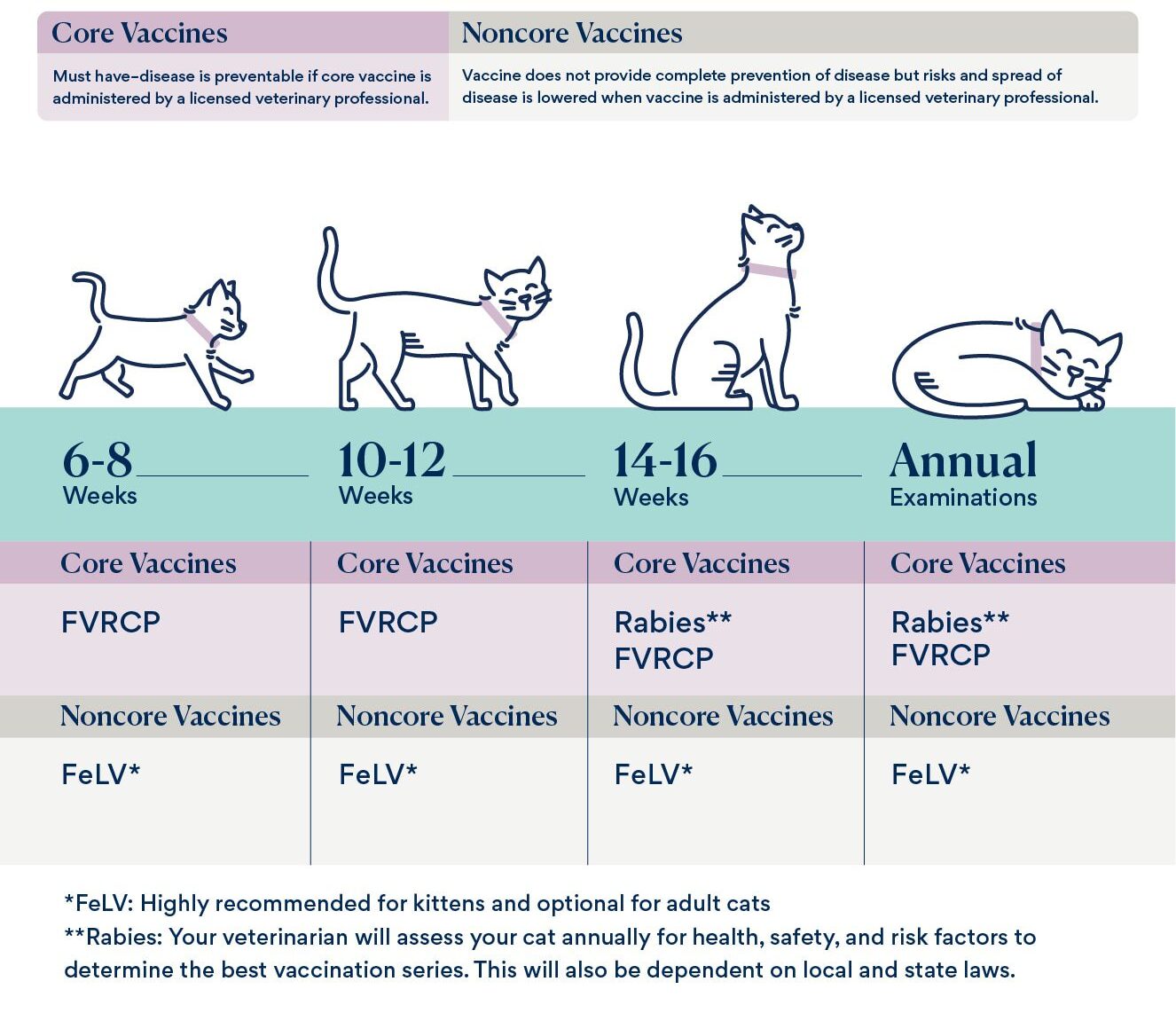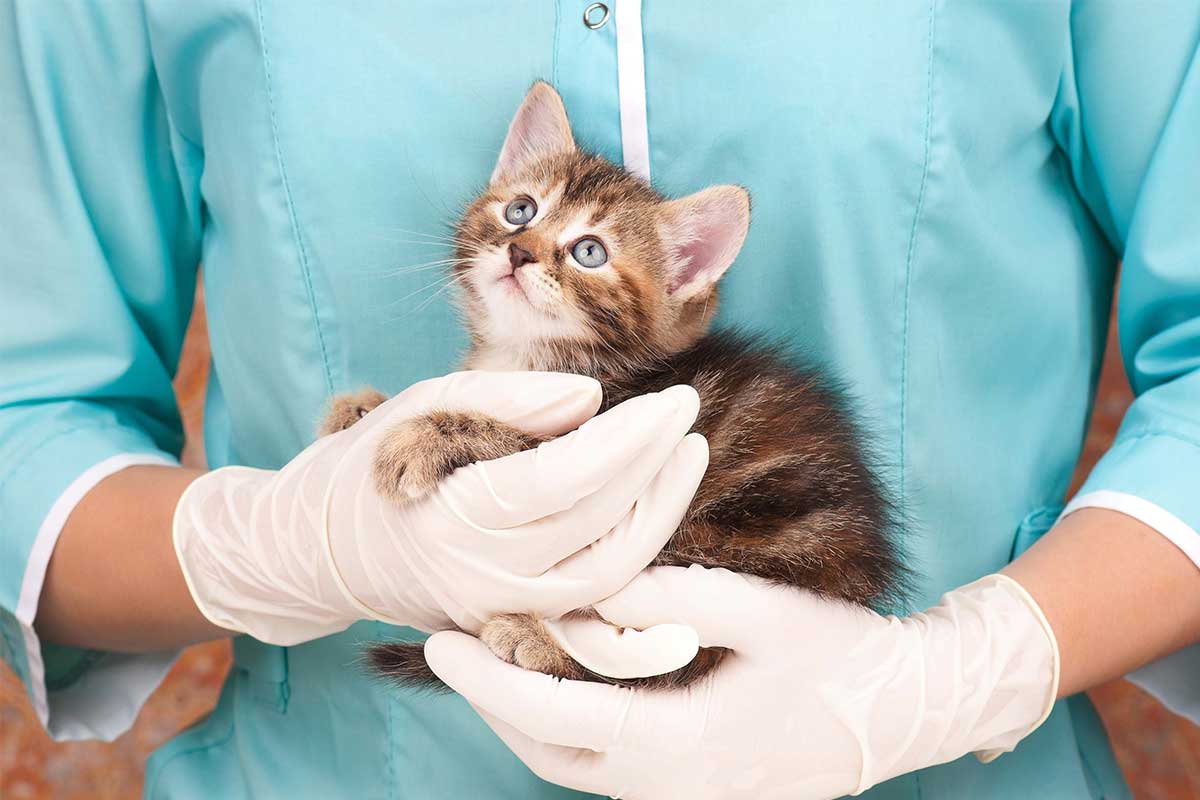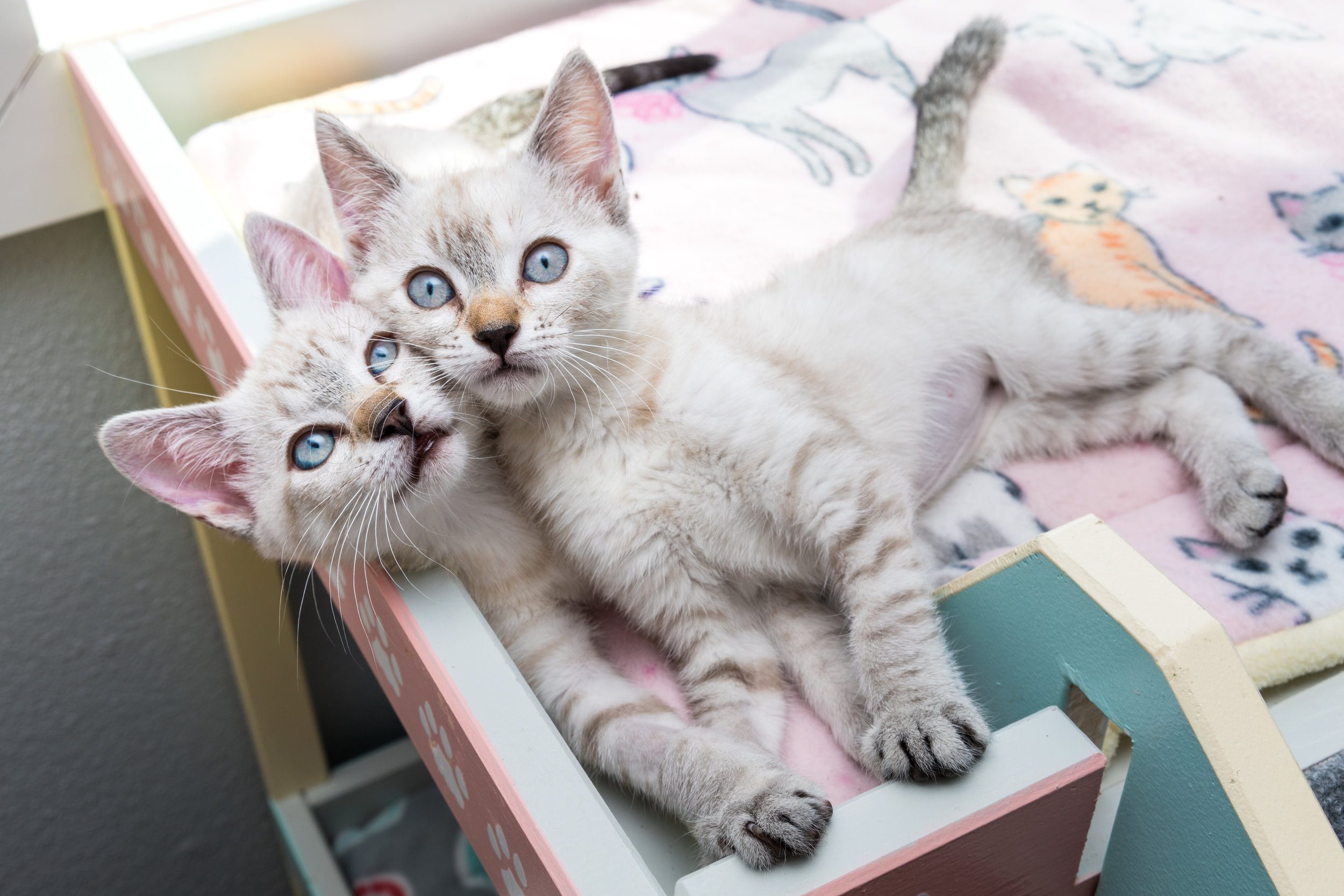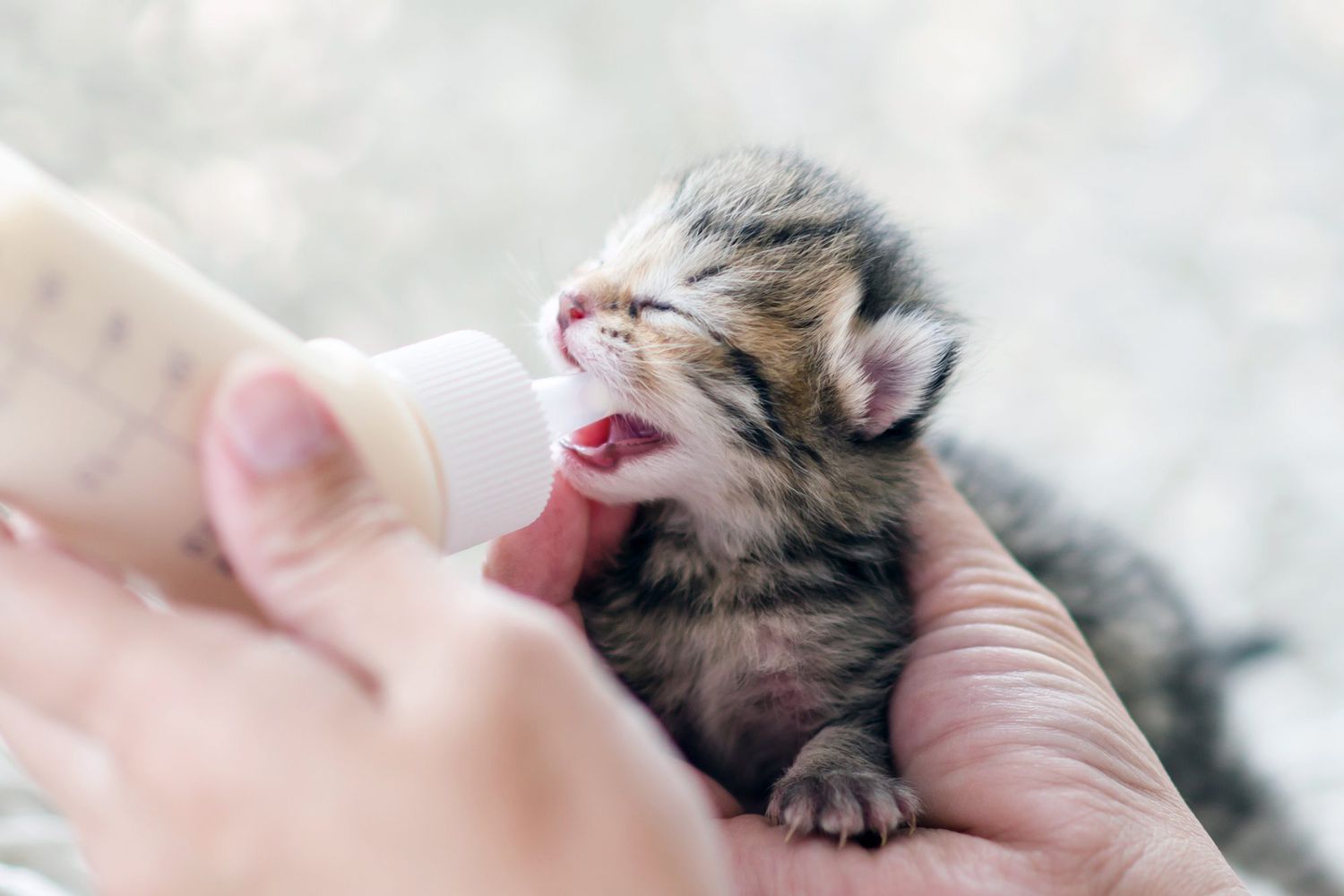Are you a proud new owner of an adorable kitten? If so, then understanding the importance of a vaccination schedule for your furry friend is essential. By delving into this subject, you will not only ensure the health and well-being of your kitten but also protect them from potentially life-threatening diseases.
Did you know that vaccinations can prevent up to 90% of common feline illnesses? That's right! So, whether you're a seasoned pet owner or embarking on this journey for the first time, let's explore the world of vaccination schedules for kittens together. Get ready to become an expert in safeguarding your precious companion!
Key Takeaways:
- Kittens should receive their first vaccination at around 6-8 weeks of age to protect them against common diseases.
- A series of booster shots are necessary for kittens to develop full immunity, typically given every 3-4 weeks until they are around 16 weeks old.
- Vaccination schedules may vary depending on the specific vaccine used and the veterinarian's recommendation.
- Core vaccines, such as those for feline panleukopenia, calicivirus, and rhinotracheitis, are essential for all kittens to receive.
- Additional non-core vaccines, such as those for feline leukemia virus or rabies, may be recommended based on the kitten's lifestyle and risk factors.
The Importance of Vaccination Schedule for Kittens
Why vaccinations are important for kittens
Vaccinations are crucial for the health and well-being of kittens. They protect them from potentially life-threatening diseases caused by viruses and bacteria. Kittens have developing immune systems that make them more vulnerable to infections, so vaccines help strengthen their immunity and prevent serious illnesses. By following a vaccination schedule, you can ensure your kitten grows up healthy and protected.
The role of a vaccination schedule
A vaccination schedule is a planned series of shots that kittens receive at specific ages. This schedule is carefully designed to provide optimal protection against common diseases while considering the maturation of the kitten's immune system. The timing of vaccinations is critical because it allows the immune system to respond effectively to each vaccine, building immunity over time.
Following a vaccination schedule helps ensure that kittens receive all necessary vaccines at the right time, maximizing their protection against diseases. It also helps veterinarians track which vaccines have been given and when boosters are due. By adhering to this schedule, you can give your kitten the best chance at a healthy life.
When and What Diseases: The First Round of Vaccinations for Kittens
The timing of the first round of vaccinations
The first round of vaccinations for kittens usually takes place when they are around 6-8 weeks old. At this age, maternal antibodies received from their mother start to decline, making it necessary for them to develop their own immunity through vaccines.
Diseases covered in the first round
The initial set of vaccinations typically includes protection against several common feline diseases:
1. Feline Panleukopenia (FPV): Also known as feline distemper, this highly contagious viral disease can cause severe gastrointestinal symptoms and weaken the immune system.
2. Feline Calicivirus (FCV): FCV is a respiratory virus that can cause flu-like symptoms in kittens, such as sneezing, nasal discharge, and ulcers in the mouth.
3. Feline Herpesvirus (FHV): This virus causes feline viral rhinotracheitis, a respiratory infection with symptoms similar to FCV. It can lead to severe upper respiratory distress in kittens.
By vaccinating against these diseases early on, you provide essential protection for your kitten's health and reduce the risk of serious complications or even death.
Booster Shots for Kittens: How Often and Which Diseases They Protect Against
The need for booster shots
After the initial round of vaccinations, kittens require booster shots to ensure continued immunity. Booster shots help strengthen and prolong the effectiveness of vaccines by reminding the immune system how to respond to specific diseases. These additional doses are crucial for maintaining long-term protection against infectious diseases.
Frequent diseases covered by booster shots
Booster shots typically cover the following diseases:
1. Feline Leukemia Virus (FeLV): FeLV is a contagious virus that weakens the immune system and can lead to various health problems, including cancerous tumors and anemia.
2. Rabies: Rabies is a viral disease that affects the nervous system and is often fatal in both animals and humans. Vaccination against rabies is required by law in many regions.
3. Feline Immunodeficiency Virus (FIV): FIV weakens the immune system over time, making infected cats more susceptible to infections and other illnesses.
By administering booster shots at regular intervals recommended by your veterinarian, you help ensure that your kitten remains protected from these dangerous diseases throughout their life.
Possible Side Effects and Risks of Kitten Vaccinations
Common Side Effects
Vaccinating your kitten is crucial for their health, but it's important to be aware of the potential side effects. While most kittens experience no adverse reactions, some may have mild symptoms such as a slight fever, decreased appetite, or temporary lethargy. These side effects usually subside within a day or two without any intervention. It's essential to monitor your kitten closely after vaccination and contact your veterinarian if you notice any concerning symptoms.
Rare but Serious Risks
Although rare, there are more severe risks associated with kitten vaccinations that pet owners should be aware of. Allergic reactions can occur in some kittens, leading to symptoms like difficulty breathing, facial swelling, or hives. These reactions require immediate veterinary attention. Additionally, certain vaccines may rarely cause more serious complications such as injection site tumors or immune-mediated diseases. However, it's important to note that the benefits of vaccination far outweigh these rare risks.
Tips for Minimizing Risks
To minimize the potential risks associated with kitten vaccinations, it's crucial to follow proper protocols and guidelines recommended by your veterinarian. Ensure that your kitten receives vaccines from a reputable source and that they are administered by a trained professional. Avoid over-vaccination by following the appropriate vaccination schedule tailored to your kitten's age and lifestyle. If you have any concerns about potential side effects or risks specific to your kitten's health condition, consult with your veterinarian for personalized advice.
Conclusion:
While there are possible side effects and rare risks associated with kitten vaccinations, they are generally safe and highly effective in preventing serious diseases. By understanding these potential issues and taking necessary precautions, you can ensure the well-being of your furry friend while providing them with essential protection against harmful infections. Remember, your veterinarian is the best resource for guidance on vaccinations and can address any concerns you may have.
Kitten Health: Understanding the Limitations of Vaccinations
What Vaccinations Protect Against
Vaccinations play a vital role in safeguarding your kitten's health by providing immunity against various infectious diseases. Common vaccines protect against diseases like feline herpesvirus, calicivirus, panleukopenia (feline distemper), and rabies. These vaccines stimulate your kitten's immune system to recognize and fight off these pathogens, reducing the risk of severe illness or even death.
Vaccine Limitations
While vaccinations are highly effective, it's important to understand their limitations. Vaccines do not guarantee 100% protection against all diseases. Some kittens may not develop sufficient immunity after vaccination due to factors such as a compromised immune system or improper vaccine administration. Additionally, vaccines may not provide lifelong immunity, requiring periodic booster shots throughout your cat's life.
Complementary Preventive Measures
To enhance your kitten's overall health and well-being, it's essential to complement vaccinations with other preventive measures. Regular veterinary check-ups help detect any underlying health issues early on and ensure timely intervention. Maintaining good hygiene by regularly cleaning litter boxes and feeding areas helps prevent the spread of infections. Proper nutrition, exercise, and stress reduction techniques also contribute to a strong immune system in kittens.
Conclusion:
Understanding both the benefits and limitations of vaccinations is crucial for ensuring your kitten's health. While vaccines provide significant protection against common diseases, they are not foolproof solutions. By combining vaccinations with other preventive measures tailored to your kitten's specific needs, you can provide them with comprehensive care that promotes their overall well-being and longevity.
Missed Vaccinations: Catching Up and Ensuring Kitten's Health
The Importance of Catching Up
If your kitten has missed any vaccinations, it's essential to catch up as soon as possible. Vaccinations are designed to be administered at specific ages to ensure optimal protection against diseases. Delaying or missing vaccinations can leave your kitten vulnerable to potentially life-threatening infections. By catching up on missed vaccines, you provide your kitten with the best chance of developing a robust immune response and staying healthy.
Creating a Catch-Up Schedule
To catch up on missed vaccinations, consult with your veterinarian who will create a tailored catch-up schedule based on your kitten's age and vaccination history. This schedule may involve administering multiple vaccines in a shorter time frame to bridge the gap and establish proper immunity. It's crucial to strictly adhere to this catch-up schedule to ensure adequate protection for your kitten.
Importance of Regular Boosters
In addition to catching up on missed vaccinations, it's important to stay consistent with regular booster shots throughout your kitten's life. Booster shots help maintain the effectiveness of initial vaccines by reinforcing immunity against diseases that require periodic reinforcement. These boosters play a vital role in ensuring long-term protection for your furry friend.
Conclusion:
While it's concerning if your kitten has missed any vaccinations, catching up is crucial for their health and well-being. By working closely with your veterinarian and following a tailored catch-up schedule, you can ensure that your kitten receives the necessary vaccines at the right time. Additionally, staying consistent with regular booster shots will help maintain their immunity over time, providing them with ongoing protection against potential threats.
Durations of Protection from Vaccinations and Additional Preventive Measures for Kittens
Vaccine Durations
Vaccines provide varying durations of protection depending on the specific disease they target. Some vaccines, like those for feline herpesvirus and calicivirus, may require annual boosters to maintain immunity. Others, such as the rabies vaccine, provide protection for longer periods, typically lasting three years. It's important to follow your veterinarian's recommendations regarding booster shots to ensure continuous protection for your kitten.
Complementary Preventive Measures
While vaccinations are essential for your kitten's health, additional preventive measures can further enhance their well-being. Regular flea and tick prevention treatments help protect against external parasites that can transmit diseases. Deworming medications are crucial in preventing internal parasites that can cause various health issues. Maintaining a safe and clean environment, providing a balanced diet, and offering plenty of mental and physical stimulation also contribute to overall wellness.
Creating a Comprehensive Preventive Plan
To provide comprehensive protection for your kitten, it's important to create a preventive plan that combines vaccinations with other preventive measures tailored to their specific needs. Consult with your veterinarian to develop a personalized plan that includes regular booster shots, parasite prevention strategies, and lifestyle recommendations to ensure optimal health throughout your kitten's life.
When should I start vaccinating my kitten?
To ensure your kitten's health, they should receive two rounds of vaccinations. The first set should be administered at nine weeks old, and a second booster set should be given at three months old. After this initial vaccination period, it is recommended to give your kitten regular booster vaccinations once a year. Until your kitten has completed their vaccinations and has been neutered, it is important to keep them indoors for their safety.
How many shots do indoor kittens need?
Indoor cats typically only need to be vaccinated against feline panleukopenia virus, feline herpesvirus-1, and feline calicivirus. These essential vaccines are recommended for all cats, regardless of whether they live indoors or outdoors, due to the widespread or severe impact of these diseases.
What shots do kittens absolutely need?
Every kitten must receive essential vaccinations, such as feline rhinotracheitis, feline calicivirus, feline panleukopenia, and rabies. Additional vaccinations should be considered depending on your location and your cat's lifestyle.
How many Fvrcp vaccines do kittens need?
It is recommended that kittens receive their initial FVRCP vaccination between six to eight weeks of age. This should be followed by three additional booster shots, given every three to four weeks, until they reach approximately 16 to 20 weeks of age. Adult cats, on the other hand, should receive a booster shot once every three years as advised by their veterinarian.
Is it too late to vaccinate my kitten?
There is no time limit on when you can start a vaccination program for your pet. However, if more than 12 months go by without getting booster shots, your pet may have to start the vaccination process again because their immunity will have weakened.
When should kittens be dewormed?
For kittens, it is recommended to start deworming at 6 weeks of age and continue deworming at 8, 10, and 12 weeks of age. The mother cat should also be treated at the same time. After that, kittens should be dewormed every month until they reach 6 months of age.

















